Lucky Luciano, the notorious American Mafia boss, was one of the most influential and feared criminals of the 20th century. His name is synonymous with the rise of organized crime in the United States and the establishment of the Mafia.
A gangster, through and through, Luciano lived an astounding life full of intrigue, danger, and excess. From humble beginnings as an Italian immigrant, to Prohibition-era bootlegging and racketeering, political manipulation, and murder, Luciano’s criminal exploits were as bold as they were brutal, and forever changed the landscape of the American underworld.
His story is a fascinating tale of ambition, cunning, and violence that has captured the imagination of people for generations.
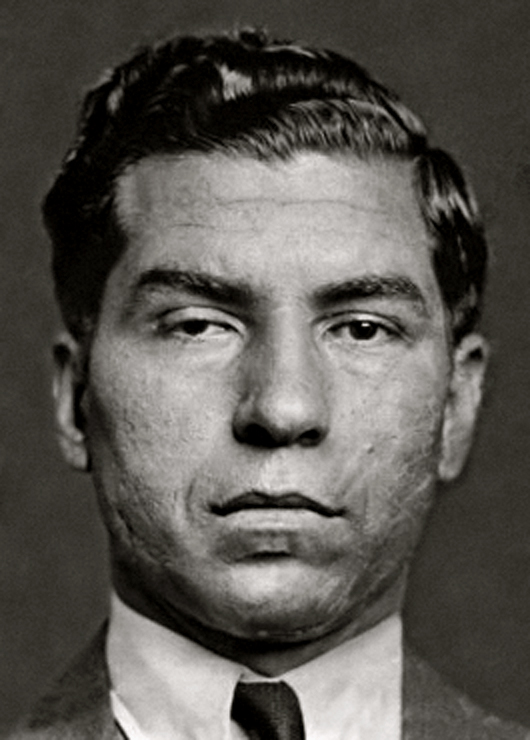
From Sicily to New York City
Lucky Luciano’s early life was defined by an impoverished background and a deep desire to escape poverty. Born Salvatore Lucania in Sicily in 1897, he was the third of five children to his father, Antonio Lucania, and his mother, Rosalia Capporelli.
In Sicily, Luciano’s father labored in the sulfur mines and managed to scrape together the funds to provide for their large family. When he was around nine or ten years old, the family immigrated to the United States, settling in New York City’s Lower East Side, a neighborhood known for its overcrowding, poverty, and rampant crime.
Although they had moved in the hope of a better life of more prosperity, Luciano’s family still struggled with poverty and making ends meet. As a schoolboy, Luciano quickly realized that he needed to make money to survive, and took to the rough-and-tumble of the streets fairly quickly.
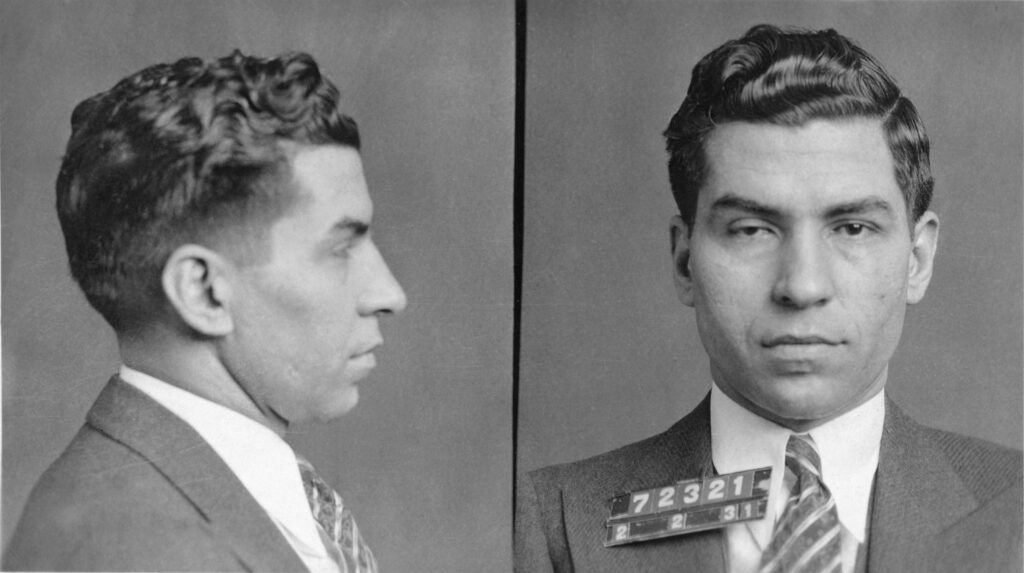
Shoplifting, drug dealing, and even taking lunch money from younger students as “protection” – all swiftly became part of his repertoire. This eventually led him to cross paths with a Jewish boy named Meyer Lansky, who refused to be intimidated by Luciano’s bullying. The two boys soon became friends and lifelong associates, with Lansky playing a key role in Luciano’s later criminal activities.
Luciano’s teenage years were marked by truancy and his first brushes with gang activity. At an early age, The Five Points Gang recruited him to be a member. The Five Points Gang was a criminal organization that operated in Manhattan, and he quickly gained a reputation for being tough and ruthless while working for them.
It was also around this time that ‘Salvatore Luciana’ decided to change his name to Charles, as he believed that the nicknames Sal or Sally weren’t masculine enough. He also later changed his surname to Luciano, thinking that it would be simpler for Americans to pronounce. His moniker “Lucky” would be adopted later, as well.
Despite his troubled youth, Luciano’s natural talent for leadership, ruthlessness, and networking would eventually propel him to the top of the criminal underworld. With Lansky as his trusted advisor, Luciano transformed the American Mafia into a well-organized syndicate with unparalleled power and influence.
Prohibition, Bootlegging, and Rising In the Ranks
During the early 1920s, Lucky Luciano, along with Lansky, began bootlegging, capitalizing on the opportunities presented by Prohibition. Illegally shipping and providing alcohol to New York speakeasies, they quickly began making a killing.
In particular, they had a competitive edge over their rivals because of contacts that enabled them to dock ships in New York harbor, while others had to use smaller boats to offload mother ships to avoid discovery.
Luciano’s reputation as a bootlegger grew, as did his wallet. In 1920, he was recruited to join crime boss Giuseppe, “Joe the Boss”, Masseria’s gang and by 1925 he had risen to Masseria’s chief lieutenant, overseeing various illegal operations, including prostitution, narcotics distribution, and bootlegging.
Although he was rising fast in the ranks of Masseria’s crime family – New York’s largest – he spent a short time under the wing of Arnold Rothstein, another influential figure in the organized crime scene. However, after Rothstein was murdered in 1928, Luciano was back working with Masseria.
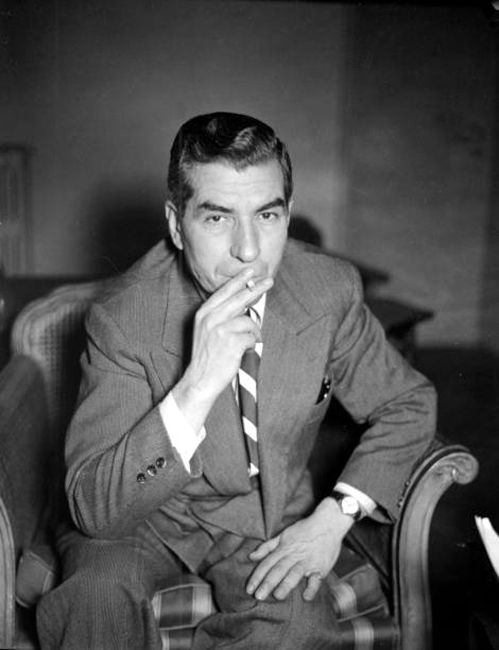
In 1929, an attempt on his life almost left Luciano on the wrong end of a “one-way ride.” One afternoon, he was forcibly taken by four men in a car, brutally beaten, and stabbed multiple times with an ice pick. He was left for dead on a beach in Staten Island. Despite his severe injuries, Luciano remarkably managed to survive the assassination attempt, and like a true mobster, he chose to remain silent and never ‘snitch’ on his attackers.
As Luciano was recovering, the Castellammarese War erupted in the late 1920s, a bloody power struggle between his boss, Masseria, and Salvatore Maranzano, a rival crime boss. Luciano, who saw the violence as a barrier to the business, saw his opportunity and took it.
In a bold move, he plotted to eliminate his boss and end the gang war by setting up Masseria’s assassination in 1931, secretly siding with Maranzano in the Castellammarese War. With Masseria dead, Luciano was able to help Maranzano take control of the dead man’s bootlegging turf and then assume control of his lottery business.
But, Charles “Lucky” Luciano and his meteoric rise through the crime business wouldn’t stop there.
The Commission and Organizing Crime
Serving under Maranzano was likely never a part of Luciano’s plan – as opposed to the traditionally thuggish Sicilian mafia tactics, he envisioned a more structured, systematic organization. And he would soon get his way.
Just six months after the assassination of Masseria, Luciano orchestrated the assassination of Maranzano with help from trusted associates, Lansky and “Bugsy” Siegel. Following Maranzano’s death, Luciano inherited the crime family, which would eventually become known as the Genovese family and was home to iconic figures like Vincent Gigante.
Luciano also continued Maranzano’s committee of Five Families, which controlled East Coast rackets for decades by bringing together the largest, most powerful crime families in the region.
But rather than taking the moniker, “Boss of Bosses,” as Maranzano had, Luciano preferred to call himself the chairman of the board. Regardless, his authority and power were unquestioned.
Furthermore, he pushed onward, establishing and hosting the first meetings of the “Commission” – a national, organized criminal syndicate, to avoid unnecessary infighting and cooperate to maximize profits for all. Under Luciano’s leadership, the Commission nationally unified the Five Families and dozens of other criminal gangs across the country, marking a watershed moment for organized crime in America. And Luciano took his role as the undisputed leader of the Mafia quite seriously.
Immediately after his hostile takeover, Luciano modernized the Mafia, shaping it into a smoothly run national crime syndicate focused on the bottom line.
The syndicate was chiefly operated by two dozen family bosses who controlled various criminal activities such as bootlegging, numbers, narcotics, prostitution, the waterfront, unions, food marts, bakeries, and the garment trade, among many other operations. Their influence expanded and infiltrated legitimate businesses, politics, and law enforcement.
Unfortunately for Luciano, however, being the champion of American organized crime put quite the target on his back.
The Law Catches Up to Luciano
Although he had built himself a life of luxury and power, in the 1930s, Luciano would go from having it all, to finally face the consequences. If there is one thing America’s number-one kingpin should have to worry about – it was the law.
The good times finally came to an end in 1935 when New York City appointed Thomas E. Dewey as a special prosecutor to crack down on organized crime in the city. Luciano was immediately a prime target, with Dewey naming him “public enemy number one.”
The investigation moved quickly, as Eunice Carter, an African-American lawyer, and Dewey’s assistant, soon discovered that Luciano’s bondsmen and attorneys were representing a significant number of convicted prostitutes. This prompted Dewey to lead raids on brothels throughout the city, resulting in the arrest of more than a hundred individuals, mostly women.
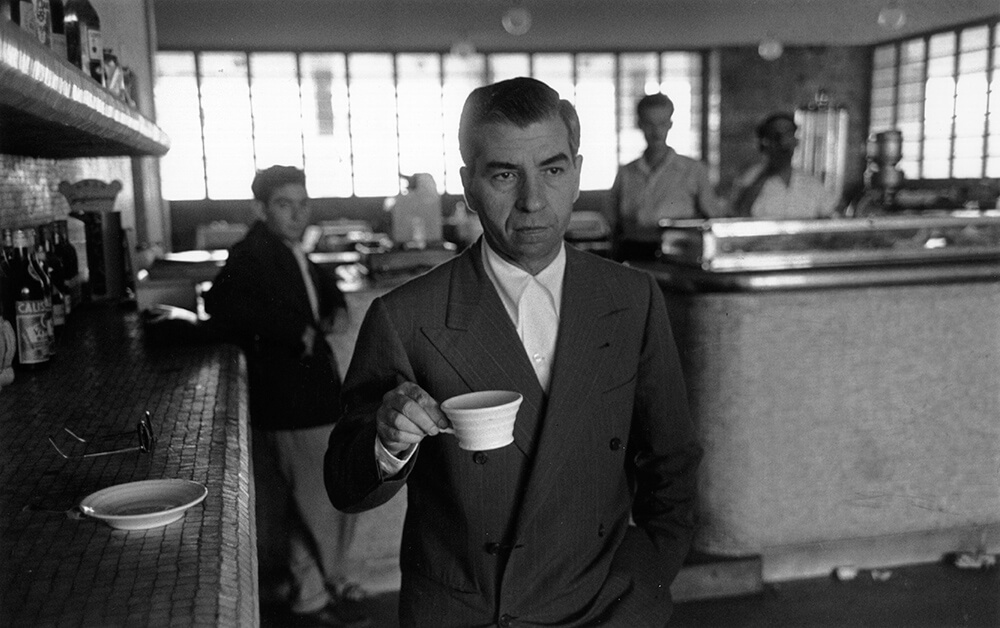
Crucially, some of the detained individuals provided prosecutors with the necessary information that connected Luciano to the vast prostitution network. And in 1936, Dewey charged Luciano with numerous counts of compulsory prostitution, which were highly sensationalized and drove the media into a frenzy. Luciano denied being a pimp, describing the whole ordeal to be a frame job orchestrated to take him off the streets.
It took some time before the hands of the law were able to wrap themselves around Luciano – he had fled New York in March as the situation had begun heating up and was hiding out in Hot Springs, Arkansas. However, on a chance occasion, another New York detective, John Brennan, had traveled to Hot Springs for an unrelated case when he ran into the mob boss.
After declining Brennan’s request to return to the city with him, authorities eventually extradited Luciano to New York and he was arrested on April 1, 1936. Despite his claims of innocence, he was convicted on 62 counts in June 1936 and received a sentence of 30 to 50 years in prison. Luciano would end up in a cell in the maximum security Clinton Prison at Dannemora, New York, a far cry from the penthouse suite at the Waldorf Astoria that he was accustomed to.
Luciano is Exiled to Italy
By all accounts, Luciano was a quiet, model prisoner. After his incarceration, he continued to run his crime businesses for a time, through intermediaries like the acting boss, Genovese. However, he had to turn the Commission leadership over to his advisor, Frank Costello.
Everything took a sharp turn with the onset of World War II. After the explosion of the luxury liner Normandie in 1942, Navy intelligence was worried about sabotage and security at New York’s ports and waterfronts and they turned to the criminal underworld for assistance.
With the mob’s power in the longshoremen’s union, they came to Luciano to broker a deal. Luciano agreed to give the word, turning dockworkers, fishermen, and the like into the eyes of the intelligence agencies. In return, Dewey, now governor of New York, would be in a position to cut Luciano a break on his prison sentence.
Additionally, it’s possible that in the run-up to the Allied invasion of Sicily during the war, Luciano was able to assist the government through his ties and connections in his birthplace. Regardless, through his cooperation, Luciano was granted clemency.
His sentence was commuted and, as Luciano had never actually obtained citizenship, he was subsequently deported back to Italy in February 1946. It would be months before Luciano would resurface – but it would be in Havana, Cuba, not Italy. As the high-level gangster he was, he maintained his celebrity and criminal ties and moved to Cuba where he could host top mobsters and crime family heads.
That, too, would not last. The press and public took note, as did the US government, and they were not happy with Luciano’s reemergence in the Americas. Pressure from the US Narcotics Bureau and other arms of the government would force Cuba to deport Luciano once more, back to Italy, where he would live out the rest of his life.
Lucky Luciano’s Death and Legacy
Now back in Italy, Luciano’s life as an American crime boss was certainly at its end. Italian officials would move Luciano in and out of different prisons for a variety of charges in the earlier years, but eventually he would make his way to Naples to live under constant surveillance by Italian authorities.
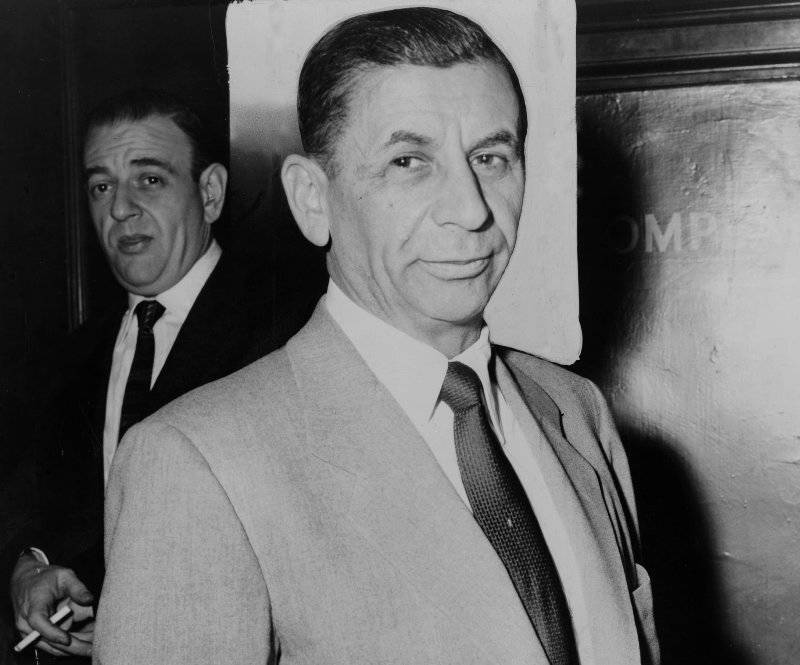
On January 26, 1962, Lucky Luciano succumbed to a heart attack at the Naples Airport, where he was meeting with an American film producer to discuss the production of a film about his life – and what a dramatic, incredible, dangerous life it was.
The mob boss and criminal that he was, Luciano lived a life full of violence, murder, and excess, wrecking havoc and pain on scores of families and individuals. Still, his legacy is one of intrigue, conspiracy, and drama, and it continues to captivate and fascinate many.
The story of Charles “Lucky” Luciano should serve as a reminder of the great power and influence that good leadership and ruthlessness can have – so much so, it can create empires of crime, hidden from sight, but present nonetheless, waiting for the forces of law and order to challenge them and take them down.
References
Buchanan, Edna. “Lucky Luciano: Criminal Mastermind.” Time, Time Inc., 7 Dec. 1998, https://content.time.com/time/magazine/article/0,9171,989779-1,00.html.
Hendricks, Nancy. “Charles ‘Lucky’ Luciano (1897–1962).” Encyclopedia of Arkansas, 19 Sept. 2022, https://encyclopediaofarkansas.net/entries/charles-lucky-luciano-3690/.
“Lucky Luciano.” Encyclopædia Britannica, Encyclopædia Britannica, Inc., 22 Jan. 2023, https://www.britannica.com/biography/Lucky-Luciano.
“Lucky Luciano.” The Mob Museum, 19 Nov. 2020, https://themobmuseum.org/notable_names/lucky-luciano/.

